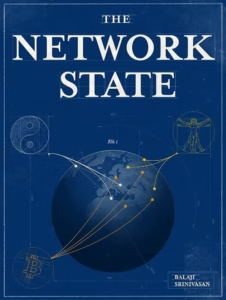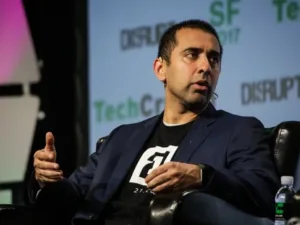
Balaji Srinivasan is a prominent figure in the tech world, known for his sharp intellect and provocative ideas. Beyond his impressive resume, which includes stints at several Silicon Valley giants and a period as the CTO of Coinbase, Srinivasan has emerged as a leading voice advocating for a radical concept: the network state.
The network state, as envisioned by Srinivasan, isn’t a physical territory in the traditional sense. Instead, it’s a digitally-connected community of like-minded individuals who share a common governance structure and identity. This structure leverages technology to overcome geographical boundaries, allowing members to collaborate, innovate and govern themselves effectively. Proponents believe network states could offer an alternative to existing nation-states, providing more agility, innovation and responsiveness to their citizens’ needs. The key element is the capacity of these digital communities to operate as self-governing entities. The potential here lies in the creation of micro-nations with distinct values, regulations and cultures.
Srinivasan’s book, The Network State (available to read free at that link), delves deeper into this concept, outlining the various technological and societal factors that could facilitate the rise of these novel political entities. It explores the potential benefits, but also acknowledges and addresses the potential challenges and risks involved in such a paradigm shift. Central to the thesis is the idea that advancements in technology, coupled with increasing dissatisfaction with traditional governance structures, create a fertile ground for the emergence of alternative models.
However, the concept isn’t without its critics. Some argue that network states could exacerbate existing inequalities, lead to the fragmentation of societies, or even be used for malicious purposes. The practical challenges of establishing and maintaining a functional network state, particularly in terms of legal recognition and security, are also significant points of contention.

Despite the controversy, Srinivasan’s ideas have sparked considerable debate and discussion within technology and political circles. His provocative thinking has forced a re-evaluation of traditional notions of nationhood and governance in an increasingly digital world, prompting crucial conversations about the future of political organization and the role of technology in shaping society.
Whether or not network states will become a reality remains to be seen. Nevertheless, Srinivasan’s vision has undoubtedly ignited an important conversation about the potential of technology to reshape our political landscape and challenge the status quo. His work offers a compelling and thought-provoking exploration of the intersection of technology and governance in the 21st century.
Last modified: January 5, 2025










